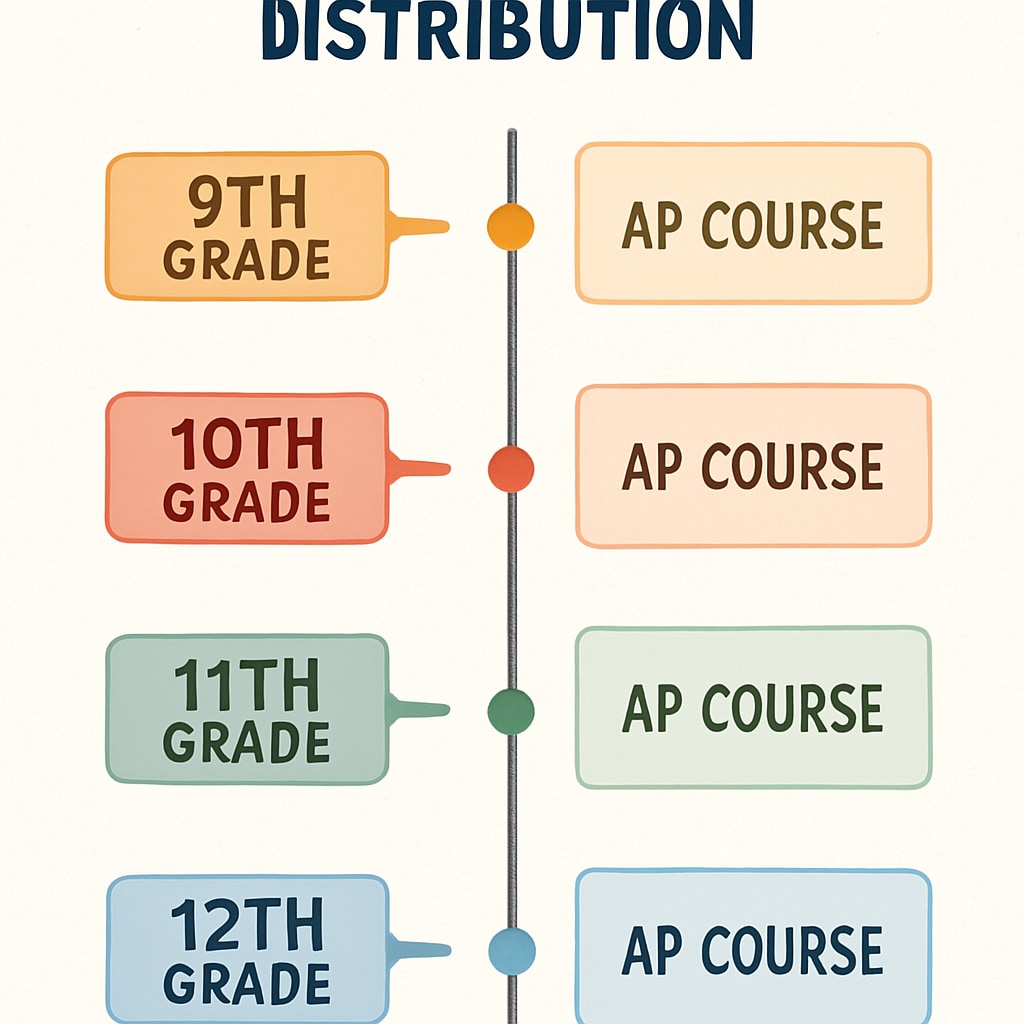AP courses, time management, and high school planning are critical components of academic success for students aiming for competitive colleges. Advanced Placement (AP) classes offer college-level coursework, but balancing multiple AP subjects requires careful strategy. This guide provides a framework to distribute 4 AP courses effectively across high school years while considering workload, student growth, and college application deadlines.
Understanding AP Course Difficulty and Prerequisites
Not all AP courses are equally demanding. For example, AP Calculus BC typically requires stronger math foundations than AP Environmental Science. Before selecting courses:
- Review prerequisite skills (e.g., algebra for AP Physics)
- Compare exam pass rates by subject (College Board data)
- Consult teachers about workload expectations

Four-Year AP Distribution Strategy
A balanced approach prevents burnout while demonstrating academic growth:
- Grade 9: 0-1 foundational AP (e.g., AP Human Geography)
- Grade 10: 1-2 intermediate courses (AP World History, AP Computer Science Principles)
- Grade 11: 2-3 rigorous subjects aligned with college majors (AP Biology, AP Language)
- Grade 12: 1-2 specialized APs (AP Economics, AP Literature)

Synchronizing With College Application Deadlines
Most colleges evaluate applications before senior year grades are available. Therefore:
- Prioritize core subject APs (Math/Science/English) by junior year
- Use senior year APs to showcase specialized interests
- Schedule demanding APs before standardized test months
Pro Tip: Many universities value sustained challenge over one difficult year. A student taking 2 APs annually often appears stronger than one cramming 4 APs in junior year alone.


